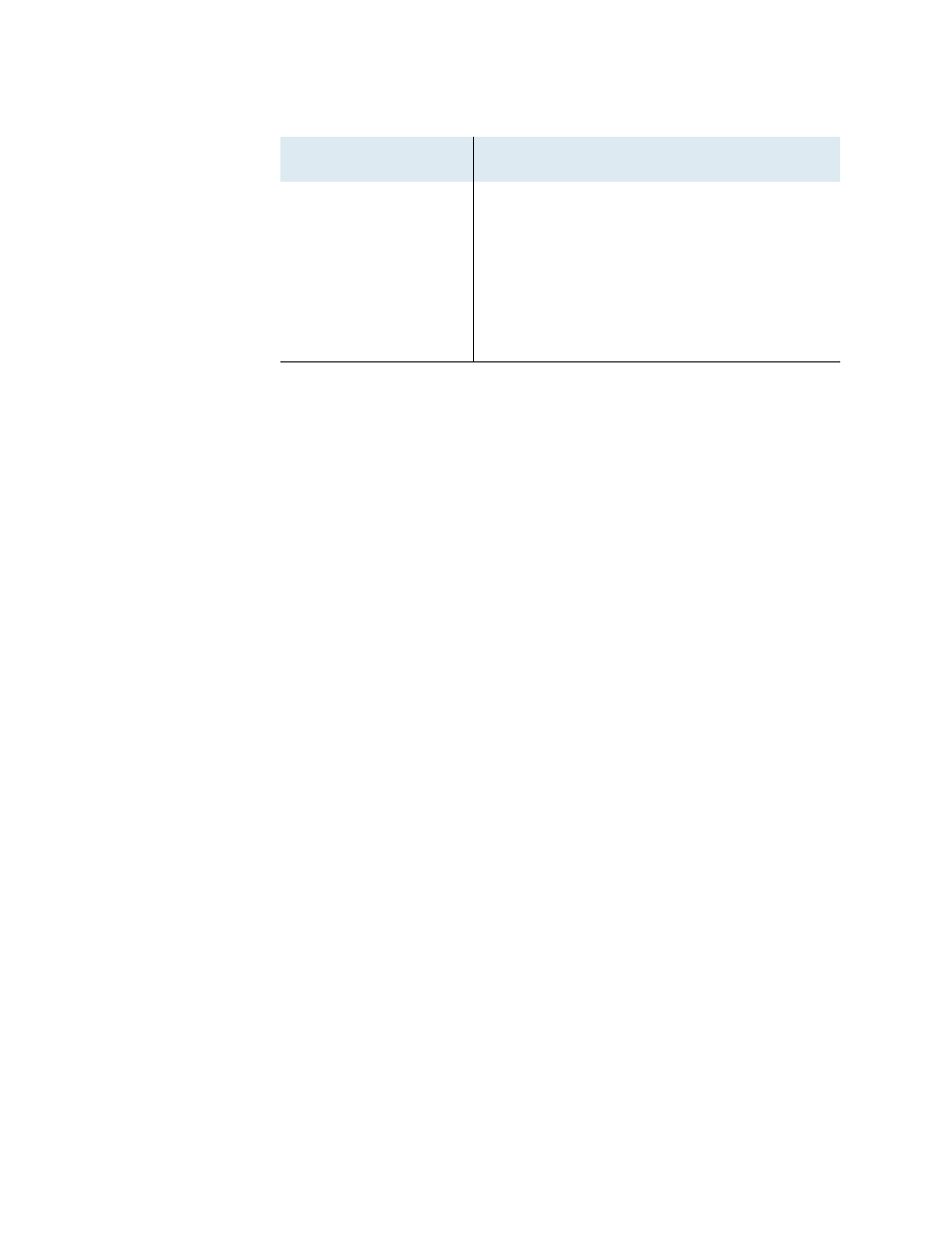Editing a filter in the buffer, Deleting a filter from the buffer, Deleting an ip filter – Verilink Net Engine (3150-30626-001) Product Manual User Manual
Page 143

NetEngine IAD User Guide
Router Configuration
124
Editing a Filter in the Buffer
To edit a filter currently stored in the buffer, follow these steps:
1. On the IP Filter Copy to Buffer menu, type
E
to edit the filter.
2. Follow the IAD messages to enter values (page
).
3. When you enter the last parameter, the IAD displays the summary
information and saves the configuration. The IAD displays the IP Filter
Configuration menu.
4. Continue with other configuration tasks, or press Escape to return to
the Router Configuration menu.
5. Reset the IAD (page
) when you finish IP filter configuration.
Deleting a Filter from the Buffer
To delete a filter currently stored in the buffer, type
X
.
The IAD deletes the filter from the buffer and displays the IP Filter
Configuration menu.
Deleting an IP Filter
To delete a filter from the IP Filter table, toggle input or output filters
(Option
T
on the IP Filtering Configuration menu) and follow these steps:
1. On the IP Filtering Configuration menu, type
X
to select Delete one
filter of the chosen type.
2. The IAD displays the filter table for this interface and prompts for a
filter number to delete.
T1/E1 Output Filters: Enabled
num state action srcLwP srcHiP src.ip.add.low src.ip.add.hi QoS
proto mask
dstLwP dstHiP dst.ip.add.low dst.ip.add.hi Level
0
Idle
Pass
0
65535
168.192.1.10 255.255.255.25
5
TCP
0H
0
65535
92.100.1.1
255.255.255.255 0
Type the filter number to delete and press Enter.
3. The IAD permanently removes the filter from the table, and displays
the IP Filtering Configuration menu.
4. Continue with other configuration tasks, or press Escape to return to
the Router Configuration menu.
5. Reset the IAD (page
) when you finish IP filter configuration.
mask
ICMP or TCP only
dstLwP
Filter Destination Port Low
dstHiP
Filter Destination Port High
dest.ip.addr.low
Filter Destination IP Low Address
dest.ip.addr.high
Filter Destination IP High Address
Table 5–2.
Filter Details
Parameter
Description